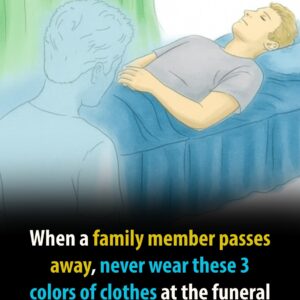“My dad burst into the office, out of breath, asking, ‘What happened to my daughter? Is she okay?’ The principal cleared her throat and said, ‘We called you because her skirt is too short.’ My dad turned to me, his eyes scanning my outfit. He paused, then turned back to the principal and said, ‘What about your dress code policy for teachers?’”
Everything in the office froze for a second. Mrs. Calloway, the principal, blinked like she hadn’t heard right. I looked up at my dad, unsure whether to feel embarrassed or proud.
He stood there, sweaty from rushing over, but sharp in the way he locked eyes with her.
“You’re sending girls home for their clothes,” he said, “while one of your own teachers wears skirts even shorter than this to teach algebra?”
I felt a lump in my throat. I wasn’t expecting that.
It had started that morning when I wore a denim skirt—mid-thigh, nothing outrageous—and a tucked-in tee with a flannel over it. I’d seen five girls wear the same kind of outfit that week. But during second period, Ms. Takashi pulled me aside and told me I needed to go to the office.
“They said it’s ‘distracting,’” I muttered to Dad, who shook his head like he’d heard enough.
“What exactly is distracting about a knee?” he asked, then turned to Mrs. Calloway. “And if it’s boys getting distracted, why not call their parents?”
There was a long silence.
That’s when I knew—something had cracked. Not just in that office, but in me.
That day stuck with me like glue. But what happened after changed way more than I expected.
After that meeting, I was allowed to return to class—no change of clothes, no detention. Mrs. Calloway avoided my eyes. My dad gave me a wink before heading back to work. I walked down the hallway feeling taller than usual.
But word spread fast. Too fast.
By lunch, people were whispering.
“Did you hear what her dad said?”
“Apparently he called out the teachers.”
“About their skirts.”
Some kids looked at me like I was a legend. Others looked at me like I was trouble. I wasn’t used to being noticed. I wasn’t the loudest or most popular—I mostly kept to my small friend circle and art class.
But the attention made me squirm. Especially when I overheard someone say, “She’s just trying to be edgy. Probably planned it.”
The thing is, I hadn’t. I wasn’t trying to start a protest. I just got dressed for school.
And it didn’t stop there.
That Friday, I got pulled out of class again. This time, by Ms. Takashi herself.
“I heard what your father said,” she said, arms crossed. “You might want to tell him not to embarrass you like that again.”
My mouth went dry.
“What do you mean?”
“I mean,” she leaned closer, “being disrespectful to authority doesn’t help your case. And neither does playing victim.”
I went home with a tight throat. That night, I told my dad what happened.
He was quiet for a minute.
Then he got up, walked to the garage, and came back with a dusty folder.
Inside were old documents, photos, and newspaper clippings. My dad sat across from me and laid one photo flat on the table.
It was a picture of a woman. About my age. Wearing a white t-shirt and a mid-thigh skirt, holding a protest sign. My heart dropped when I saw the sign: “My body is not a distraction.”
“Who’s that?” I asked.
He looked me straight in the eye. “Your aunt Laila. My older sister.”
I blinked.
He had never talked about her before. Ever.
“She passed before you were born,” he said. “Car accident. But in college, she was known for starting conversations people didn’t want to have. Dress codes, racial profiling, campus harassment.”
“She looks like me,” I said, almost whispering.
“She was like you. Smart. Observant. Quiet until she saw something wrong.” His voice wavered. “She got suspended for wearing that skirt to a panel on gender equity. They said it ‘sent the wrong message.’ She kept pushing. They couldn’t ignore her forever.”
I was stunned.
He smiled a little. “When I saw you standing in that office, all I could think was—Laila would’ve been proud.”
After that, everything hit differently.
I started noticing how the dress code got enforced. Inconsistently. Mostly on girls. Especially girls who didn’t look like the ones in yearbook club. My best friend, Soraya, wore the same outfit I did the next week and wasn’t sent to the office. She was blonde, tall, and had a mom on the PTA board.
We started keeping notes. Who got pulled. What they were wearing. It wasn’t just about clothes. It was about power.
We didn’t set out to cause problems. But word got out about our little “log.” Other girls added to it. Some parents asked questions at the next PTA meeting. One mom printed out the policy and highlighted all the vague wording—“inappropriate attire,” “distracting styles,” “excessive skin.” What does that even mean?
Then came the unexpected twist.
Ms. Takashi was suddenly reassigned.
It happened in April. The day before spring break.
We never got the full reason, but whispers said it had something to do with “inappropriate comments” made to multiple students. I wasn’t surprised. I had seen how she looked at some of the boys, how she spoke to certain girls like they were beneath her.
But what surprised me was what came after.
Mrs. Calloway retired.
And the new interim principal? Mr. Elgin. A young, soft-spoken guy who had once been our art substitute. First week on the job, he invited students to submit feedback on school policies—anonymously.
I typed mine during lunch.
A month later, our dress code was rewritten. Clearer wording. Gender-neutral language. No more “distraction” clauses.
No more policing knees.
I wish I could say the whole school changed overnight. It didn’t. Some teachers rolled their eyes. Some students still whispered. But I noticed a shift. Girls stopped bringing oversized hoodies to cover up. Boys stopped pretending like they couldn’t function around tank tops.
But here’s the part that hit me the hardest.
At the end-of-year awards assembly, they gave out this new award—“Civic Engagement Recognition.” It was meant for a student who “sparked meaningful discussion and change.”
They called my name.
I swear I forgot how to stand up. But when I finally did, the gym exploded in cheers. Not just my friends. Even some teachers clapped.
My dad was in the back row. Standing. Hands in his pockets. Smiling like the sun.
When I stepped off stage, he hugged me and whispered, “You finished what your aunt started.”
I didn’t cry until that night.
It wasn’t about a skirt anymore. It was about being seen. Heard. Valued.
Sometimes change doesn’t come from shouting. Sometimes it starts with one question that stings.
“What about your dress code policy for teachers?”
Looking back, I think that moment cracked something open—for me, for my school, maybe even for my dad.
He told me later that he used to feel powerless when Laila got silenced. That he never stood up for her the way he should’ve.
“I won’t make that mistake again,” he said. “Not with you.”
Now I keep that photo of Laila taped to the back of my closet door. I look at it every morning. A reminder that even when the world tells you to shrink, it matters when you show up anyway.
And it matters even more when someone stands beside you.
If you’ve ever been told to quiet down, cover up, or sit still when something felt wrong—keep going. Your voice might be the one that tips the first domino.
Share this if you believe one small stand can lead to big change.






